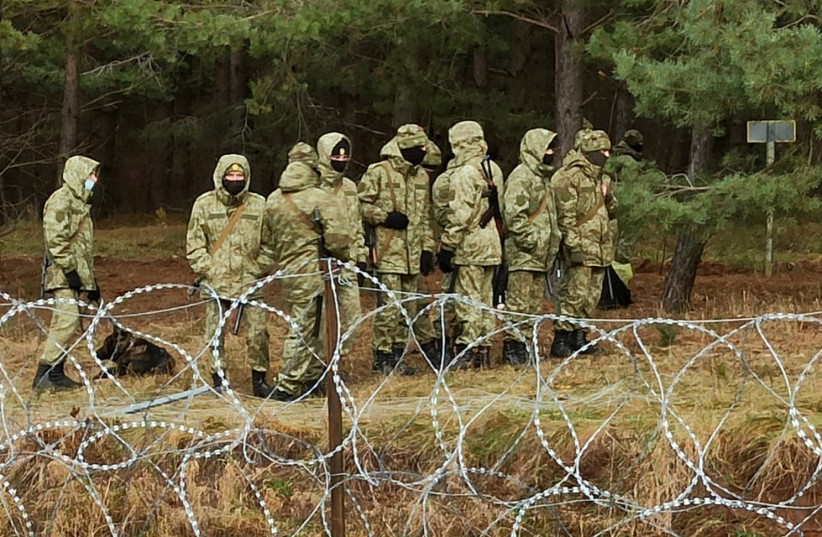Poland wants to join NATO's nuclear weapons sharing program, Polish Prime Minister Mateusz Morawiecki has stated. The move comes in direct response to Russia deploying tactical nuclear weapons in Belarus, which shares a border with Poland.
NATO's nuclear sharing program is part of its policy of nuclear deterrence, which allows the provision of nuclear weapons to NATO member countries, partner countries, and allies that do not have their own nuclear weapons arsenal. These countries are allowed to host the nuclear weaponry of their allies in their own territory and are given the right to take part in nuclear policy decision-making.
Of the three NATO countries with their own nuclear arsenal - the United States, the United Kingdom, and France - only the United States has provided nuclear weapons as part of the nuclear sharing program. Germany, Belgium, Italy, Turkey, and the Netherlands all take part in the program and are currently hosting US nuclear weapons in their territory.
Prime Minister Morawiecki shared Poland's goal of joining NATO's nuclear sharing program in response to a question posed at a European Union press conference in Brussels, Belgium on Friday.
"Since Russia intends to deploy tactical nuclear weapons in Belarus, we again call on all of NATO to take part in the Nuclear Sharing program."
"The final decision will depend on our American and NATO partners. We declare our will to act quickly in this matter," Morawiecki said, according to Polesat News. "We do not want to sit idly by while Putin escalates all sorts of threats."

Poland's previous nuclear bid
Poland had previously expressed a desire to join the nuclear sharing program in 2022, also due to nuclear threats from Russia as the conflict between Russia and Ukraine escalated.
“The problem, first of all, is that we don’t have nuclear weapons. There is no indication that we will have it in our possession in the near future. But there is always the potential possibility of participating in nuclear sharing," Polish President Andrzej Duda said in an interview with Gazeta Polska.
"We have talked with American leaders about whether the United States is considering such a possibility. The topic is open."
Shortly afterward, NATO conducted its annual two-week training exercise, Steadfast Noon, which is designed to prepare members for handling nuclear weapons and to practice putting the nuclear sharing program into effect. The Polish military took part in the exercise in a supporting role.
"We would like to stress that Poland did not strive for the possession of nuclear weapons," a spokesperson for the Polish Defense Ministry told The War Zone at the time. "As a NATO member, we participate in the Alliance's nuclear policy and are also covered by the guarantees of the Allied Nuclear Sharing program."
While the Polish president had stated that Poland was in talks with the United States about the possibility of nuclear sharing, but the US denied those claims and stated it had no plans to deploy nuclear weapons to NATO members that had joined after 1997.
Poland's current nuclear concern
Poland's most recent plea for nuclear assistance from NATO comes following Russia's deployment of nuclear warheads to Belarus earlier in June. It was Russia's first deployment of nuclear warheads outside of Russia since the fall of the Soviet Union.
Belarusian President Alexander Lukashenko stated that the warheads were more powerful than the American atomic bombs that devastated Hiroshima and Nagasaki near the end of World War II.
"We have missiles and bombs that we have received from Russia," Lukashenko said in an interview with the Rossiya-1 Russian state TV channel. "The bombs are three times more powerful than those dropped on Hiroshima and Nagasaki."
Russian President Vladimir Putin emphasized that Russia would retain complete control over the nuclear weapons in Belarus and that the move of the warheads would not violate nuclear non-proliferation agreements.
Poland urged a response from NATO immediately after the nuclear deployment from Russia to Belarus was announced.
“I absolutely believe that such a situation demands an unequivocal response from NATO,” President Andrzej Duda stated at a news conference in Paris, ahead of talks with French President Emmanuel Macron and German Chancellor Olaf Scholz on June 12.
At the same conference, Duda also pushed for Ukraine to be given NATO membership.
